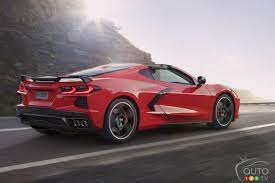British Car Companies
British Car Companies
Throughout history, British car manufacturers have produced vehicles for the masses. Some are more famous than others, but most of them have been around for a long time. The Triumph Motor Company was founded in 1886 and started by manufacturing bicycles. By 1906, they added engines to the bikes and became the largest motorcycle japanese car brands manufacturer in the world. In 1924, they bought the Dawson Car Company and began building cars. In 1930, they introduced the Super 7. In 1944, they sold the business to the Standard Motor Company. They later sold the company to British Leyland in the 1960s and continued to manufacture cars in the UK.
Another popular British automaker was Invicta. Founded in 1905, Invicta went out of business in 1914 but was bought back by Ford in the same year. The company moved to Chelsea in 1925 and lasted there until 1950. In 2004, the company reincarnated, returning to the market in 2004. Invicta was once one of the most popular car manufacturers in the UK, but it buy Snapchat accountsdid not last long.
British car makers are able to take advantage of the changing technology of cars and make them more efficient. The latest developments in the automotive industry have allowed for the development of new cars that have a lower carbon footprint. For american car brands example, electric cars will be used in more cars than ever before. However, a lack of investment in new technology means that British car manufacturers must learn to adapt. Fortunately, there are start-up companies who are attempting to do just that.
Despite the recession, the number of British car companies is steadily growing. In July 2013, over 3500 British cars rolled off the production line. This is still a long way from the record set in 1972, when almost two million cars were produced. Nevertheless, the British automotive industry has an established tradition of high-quality premium cars. Although buy snapchat account most of the major brands are owned by foreign companies, they are investing millions of dollars into their UK manufacturing plants and creating thousands of jobs in the process.
The British car industry has a rich and varied history. In the 19th century, British Leyland was a small car maker, but it failed to respond to the rising popularity of front-wheel-drive hatchbacks. Its sales declined by 8% over the next three years, and Chrysler Italian car brands took over the company in 1974. Its success in the 1970s was due to a strong economy, but the 1970s were tough times for the industry.
The decline in car sales has negatively affected the British automobile industry. As the largest importer of British cars, China has experienced a difficult year for its car industry. The country's economy experienced its first slowdown in over two decades in 2018, with 22 million new cars sold - down 6% from the previous year. It has also reduced its tax subsidies for purchasing a new car. A slowdown in the Chinese economy has impacted the UK's automotive industry, and it has impacted the quality of cars manufactured in the UK.
The British auto industry was once dominated by a multi-brand conglomerate. In 1952, the British Motor Corporation merged with Jaguar to form British Motor Holdings. In 1972, Leyland acquired Morgan and formed the British Leyland Group. In the 1970s, this french car brands company had a long and successful run, but lack of product development caused the company's decline. The Leyland Group remained in business for another 30 years.
The British car industry was one of the most competitive in the world. The UK produced about 50% of the world's cars. In 1950, the UK produced around half of them, and it continued to export a large portion of its cars. Its car market was dominated by foreign companies by the early Seventies, but by 2008, the UK ranked 12th in the global car industry. While the British car industry has undergone a transformation, it is still home to several iconic brands.
The decline of British car sales was particularly severe in the 1970s, but the country's auto industry has survived, and despite the recession, there are still some iconic marques that have a worldwide reputation. In addition to a small, niche sector that produces expensive cars for rich clients, the UK also produces volume-manufactured vehicles for Japanese korean car brands automakers. This is the case in the UK. With a smaller car market, the country can still be a leader in terms of quality and design.




